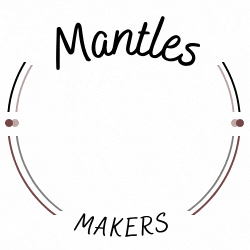For example, some time ago I wanted to rank for the keyword “local SEO”. And to do that, you want to go after keywords that get a decent amount of searches every month. At this point your list of keywords should be A LOT shorter than when you first started.
Setting up for SEO success
You can also freshen up your content by updating posts, rewriting them to make them more effective, or adding new information and statistics over time. However, creating brand new content is not the only way to keep your content fresh. Similarly, the more engaging and effective content you have on your site, the more likely your visitors will be to spend some time on your website. Search engine giant, Google will never give away the exact algorithm they use to rank sites. You shouldn’t settle for low SERP rankings when you could be at the top.
While radio ads can be an excellent way to target niche audiences who listen to specific music, podcasts, or talk shows, they lack the broad, ongoing impact SEO provides. PPC is most effective for high-competition, high-intent keywords where organic ranking is difficult. It allows you to instantly appear in front of potential customers, making it a great tool for testing and optimizing conversion strategies. PPC, on the other hand, is a form of paid advertising where you pay for clicks. While there are different types of PPC, with search engine PPC, you bid for your website’s placement at the top of SERPs. These are the sponsored results you often see above the organic listings.
You can pitch your business or products to relevant websites or news outlets with the same BHS Links target audience. If you have subject-matter expertise, consider pitching a guest blog post that points back to your website. You can also focus on your blog and create useful content—such as infographics, case studies, white papers, surveys, or statistics—that others will want to reference. By getting to know your competitors’ SEO strategies, you can formulate tactics that will help you climb the search rankings and overtake them.
- In other words, those seemingly small factors, like keywords in URL, that on their own make up 1%, are not so small.
- Our free plugin comes with features like the SEO and readability analyses, which give you feedback on your content right away.
- Though it can be time-consuming, link building is a well-acknowledged way to enhance your search engine rankings.
- Other off-page tactics like social media management, online reputation management, and email marketing can indirectly benefit your SEO by driving brand awareness and engagement.
Your Ultimate Guide to Do on-Page and off-Page SEO
More people are using AI tools for their online searches and search engines are also investing in providing AI-driven search experiences. An example of that is Google AI overviews, where Google uses AI to pull together and combine information on a search query from different resources. This is then shown in one overview, with the hope that this directly answers the specific question asked. Search engine algorithms also change over time to improve search results. Keep in mind that the goal of search engines is to provide quality content so that their users are satisfied with search results and keep using their search engine.
Content updates
Whether you’re planning SEO for a Shopify store or another website, here’s an SEO checklist to help you climb those search results. Best practices for producing relevant SEO content include offering original information, updating facts regularly, and sticking to topics within your website’s area of expertise. As part of the Search team, she enjoys creating content that helps you master SEO. We also offer a variety of SEO courses in our Yoast SEO academy, where you can find 5 free courses to get started. For example, the SEO for beginners course, the WordPress for beginners course and a course on structured data. If you’re a Yoast SEO Premium user, you get access to all 16 courses on there.
Without the right keywords, you won’t see an increase in traffic or conversion. It’s important to consider search intent because you want to understand what your visitors need or want. The term cost per click or CPC is involved in paid advertising but it can give you some additional insight into whether a keyword is lucrative. In simple terms, it’s the amount an advertiser pays each time a Google user clicks on an ad.

